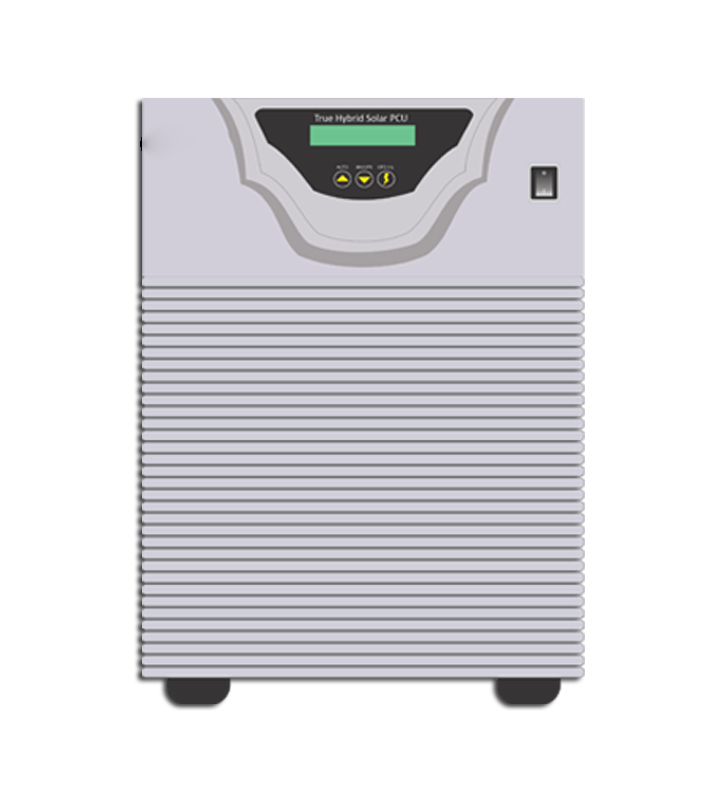

PWM (Pulse Width Modulation) solar inverters are a type of inverter technology commonly used in photovoltaic (PV) systems to convert the DC electricity generated by solar panels into AC electricity, which can be used in homes or fed into the electrical grid. These inverters process the DC output from solar panels, which may fluctuate based on sunlight intensity and panel specifications. In grid-connected systems, the AC output is synchronized with the grid’s frequency and voltage before being fed into the grid. PWM inverters are particularly suited for applications where simplicity and affordability are key, such as in small off-grid systems or cost-conscious residential setups.
AI Based Controller
Pure Sine Wave Output With Low THD
Charging in Deep Discharge
LCD/LED Display
Priority Selection Mode (Hybrid, PCU Lite, PCU Ultra)
Low Standby Power Consumption

Simplicity and Reliability : PWM inverters have a straightforward design with fewer components, making them easier to manufacture, install, and maintain. This simplicity often translates to higher reliability and lower maintenance costs over the lifetime of the system.
Compatibility : They can easily replace older inverters without requiring significant changes to the existing setup, thereby reducing upgrade costs.
Suitability for Small Systems : They are suitable for small-scale residential or off-grid applications where cost-effectiveness and simplicity are prioritized.
Efficiency : PWM inverters typically have lower efficiency compared to MPPT inverters because they do not dynamically adjust to extract maximum power from the solar panels under varying sunlight conditions.
Limited Flexibility : They are less flexible in handling shading, temperature changes, and mismatched solar panel conditions, which can significantly affect overall energy production.
Voltage Compatibility Issues : PWM inverters require the DC input voltage from solar panels to closely match the inverter's input voltage rating. This can restrict the flexibility in system design and configuration.
Keep up-to-date with the latest in lighting.